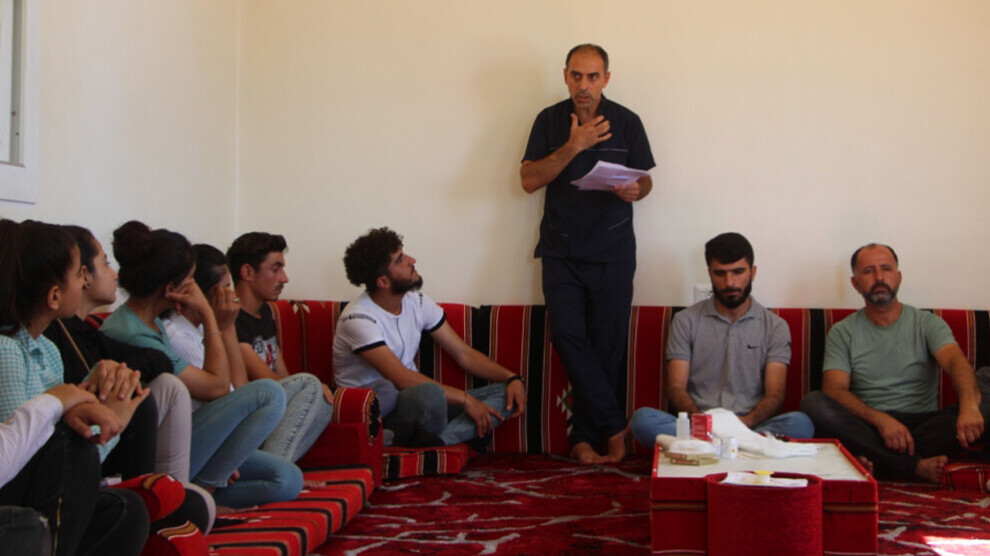Courses for emergency aid in war offered in Kobanê
The Health Committee of North and East Syria offers courses in emergency life-saving measures and advanced first aid under an emergency decree of the autonomous administration.
The Health Committee of North and East Syria offers courses in emergency life-saving measures and advanced first aid under an emergency decree of the autonomous administration.

In the event of war-related instability or in crisis areas, conventional rescue structures are often no longer effective. If a medical emergency occurs, the necessary infrastructure to care for the injured is often lacking and the traditional rescue forces cannot be accessed. That is why helping hands are needed on the ground. The Health Committee of North and East Syria therefore offers the population courses in life-saving emergency measures and advanced first aid training. The training and further education is intended to enable participants to care for the wounded at the scene of an attack or in a hostile environment.
The courses for emergency aid and life-saving in war are offered within the framework of an emergency decree of the Autonomous Administration of North and East Syria (AANES). The self-administration declared a state of emergency on 6 July. The decision was taken in light of Turkey's threats of a new invasion in the region. The courses are held in hospitals, clinics and other health facilities in the AANES area. Participants learn what to do if an ambulance cannot be there for hours - if at all - and are trained in dealing with war casualties.
The Kurdish Red Crescent organisation Heyva Sor a Kurd is taking care of the implementation of this project together with the Health Committee of North and East Syria. The trainings have been running since this Sunday, with Kobanê providing the blueprint. In three facilities in the canton - the headquarters of Heyva Sor a Kurd and the Emel hospital in Kobanê city, as well as in the Heyat clinic in the village of Sirrîn - the courses started in the morning. Twenty people are enrolled in each course.
One of the participants of the course at Emel hospital is Ebdullah Elî. "I understand it as my duty in a phase of state of emergency and general mobilisation that I prepare for war," said Elî. He expects the same attitude from his fellow human beings: "We all have to unite on the basis of the revolutionary people's war to survive this phase and frustrate the attacks and threats of the Turkish occupation against our region."
The emergency courses last between 14 and 21 days. For the next few weeks, almost all available places in Kobanê are already fully booked.